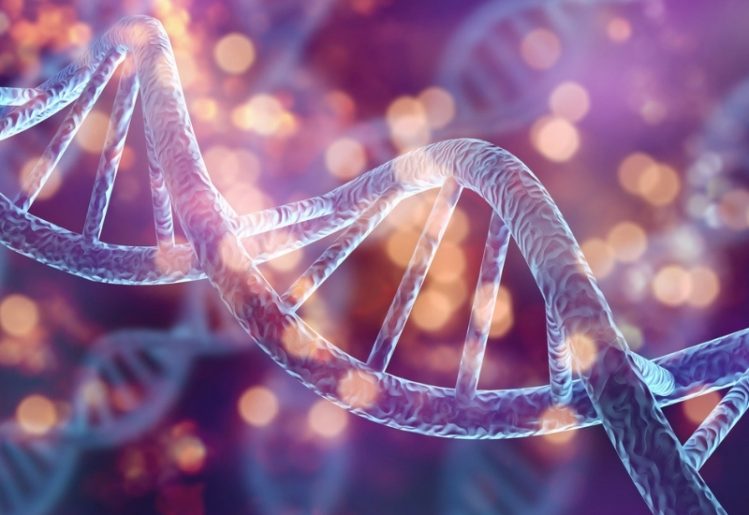Why It's Important to Get Enough Vitamin B12 During Pregnancy
It has long been known that it's important to get enough vitamin B12 during pregnancy. Now, new research has discovered that this crucial vitamin provides even more benefits to a growing baby than previously known.
Why is Vitamin B12 Important?
Vitamin B12 provides a vast range of health benefits. However, because it is a water-soluble nutrient, it is not stored in the body, but is immediately absorbed and utilized. Whatever is not needed at the time is eliminated via the urine. For this reason, it's important to continuously provide the body with adequate levels of vitamin B12 on a daily basis.
 There are many ways vitamin B12 benefits everyone, regardless of age and gender. We know that vitamin B12 helps the body form new red blood cells and improves the metabolism of cells throughout the body. It also benefits nerve function and helps the body create new DNA. Vitamin B12 also promotes a healthy heart and helps to maintain blood pressure within normal ranges when combined with vitamin B6 and folate. Along with vitamin B12, these nutrients work to benefit heart health by helping to regulate blood levels of homocysteine, a compound which can contribute to an increased risk for cardiovascular disease. Research has also shown that people with dementia exhibit vitamin B12 deficiencies, although new studies are needed to establish whether boosting B12 intake would affect the risk for developing dementia.
There are many ways vitamin B12 benefits everyone, regardless of age and gender. We know that vitamin B12 helps the body form new red blood cells and improves the metabolism of cells throughout the body. It also benefits nerve function and helps the body create new DNA. Vitamin B12 also promotes a healthy heart and helps to maintain blood pressure within normal ranges when combined with vitamin B6 and folate. Along with vitamin B12, these nutrients work to benefit heart health by helping to regulate blood levels of homocysteine, a compound which can contribute to an increased risk for cardiovascular disease. Research has also shown that people with dementia exhibit vitamin B12 deficiencies, although new studies are needed to establish whether boosting B12 intake would affect the risk for developing dementia.
Adding more vitamin B12 to your diet can be helpful and safe, but ingesting too much too quickly could result in mild adverse side effects. Those side effects or symptoms include:
- headaches
- dizziness
- nausea and/or vomiting
- anxiety
Why Do Women Need Vitamin B12 During Pregnancy?
Pregnant women are frequently given vitamin B12 shots or supplements to ensure the healthy development of their babies. Research has found that the nutrient helps babies by promoting optimal development of the nervous system and brain, although it also encourages proper growth of the physical body. In order for the baby to absorb enough vitamin B12, the mother must ingest sufficient amounts to supply her body and leave enough of a surplus for the baby. The placenta and blood of the baby should contain twice as much vitamin B12 as is present in the mother's blood supply.
A new study that focused on the importance of vitamin B12 during pregnancy found that the brain was adversely affected by a deficiency of this vitamin. While previous research established that B12 promotes the development of the brain, this new research found that speech and mathematical abilities were negatively impacted by a B12 deficiency. Using a study of mothers and their children that was completed in the 1990s, the researchers examined the diets of 14,000 pregnant women and followed up with assessments of their children. The developmental abilities of the children in the test group were evaluated periodically.
The project involved comparing the abilities of children whose mothers ate a diet high in vitamin B12 to those of children with mothers who ate a diet deficient in the vitamin. The research team compensated for other factors that might explain differences in development among the children.
The study ultimately found that six factors were affected by insufficient levels of vitamin B12. Insufficient vitamin B12 resulted in lower vocabulary in children at 24 months, which led to problems with using word combinations at 38 months. Additionally, children without exposure to vitamin B12 in the womb exhibited reduced speech intelligibility at six years of age. Children in that particular group also showed poor math comprehension from fourth to sixth grade (ages eight to 11). Those children with mothers who did not maintain sufficient levels of vitamin B12 also performed poorly on the national mathematics test, which is given to 13-year-old children.
While these findings provide a better understanding of the importance of vitamin B12 to pregnant women, the researchers say more studies need to be conducted. They hope future research will uncover why these specific abilities are affected by the level of B12 in the mother's blood, while other types of development seem unaffected. In the meantime, this early research is enough for doctors to continue urging pregnant women to increase their intake of vitamin B12.
Natural Ways to Boost Vitamin B12 Intake
One of the best ways to ensure you're getting a sufficient supply of vitamin B12 throughout your pregnancy is to take a high-quality supplement each day. Pregnachron offers a sufficient supply of B12 to help ensure your baby is getting enough of the nutrient for optimal development. Additionally, the supplement contains a broad range of essential nutrients that will help ensure the health of your pregnancy. You can also add the following B12-rich foods to your diet during your pregnancy.
Animal Liver and Kidneys
 While organ meat from any animal is packed with a broad range of nutrients, the liver and kidneys of a lamb are particularly rich in vitamin B12, containing 3,571 percent of the daily recommended value, making it ideal for pregnant women. Lamb organ meat is also rich in vitamin A, vitamin B2, selenium and copper.
While organ meat from any animal is packed with a broad range of nutrients, the liver and kidneys of a lamb are particularly rich in vitamin B12, containing 3,571 percent of the daily recommended value, making it ideal for pregnant women. Lamb organ meat is also rich in vitamin A, vitamin B2, selenium and copper.
Clams
If you're a seafood lover, adding clams to your diet will give you a potent shot of B12 that's equivalent to 7,000 percent of the DV. You will have to eat 20 clams to reach that level of B12, however.
Cereal
Unfortunately, vegans will find it difficult to get B12 naturally aside from taking a daily supplement. One of the only other ways to get vitamin B12 naturally without eating meat, fish or poultry is to consume fortified cereal. Fortified cereals are infused with powerful B vitamins, including B12. While the vitamin B12 in cereals is synthetically engineered, consuming it in this way will help you stick to your diet without risking a vitamin deficiency.





